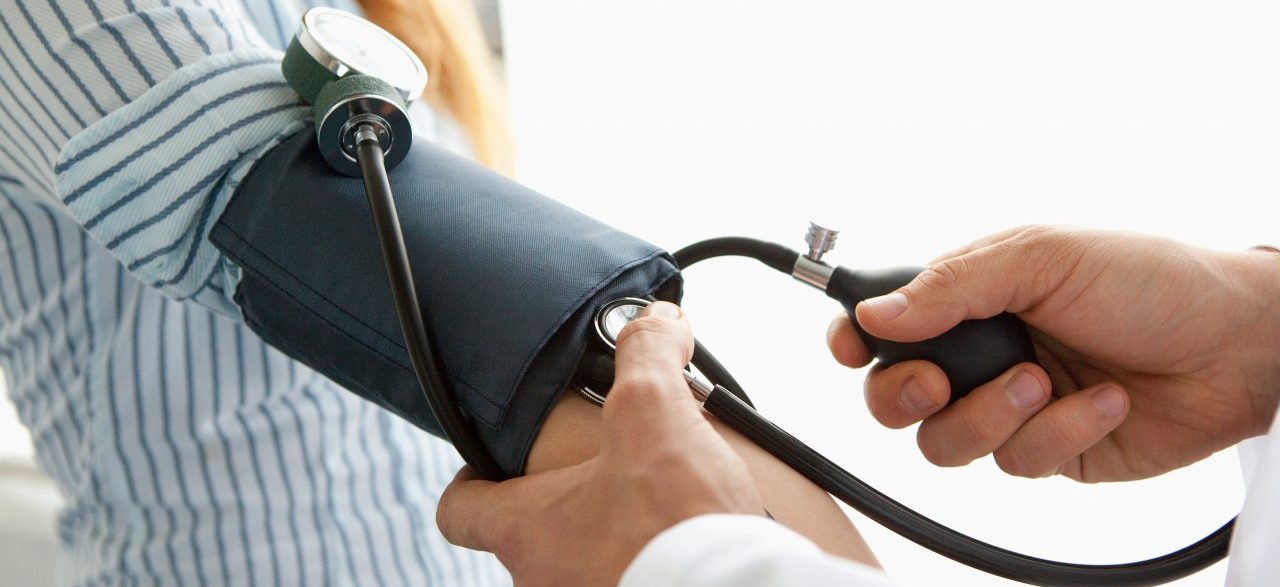What Causes High Blood Pressure?

Researchers do not know precisely what causes high blood pressure in most cases, though genes, aging, obesity, and lack of exercise can all play a role.
When you see a doctor, chances are an aide will take your blood pressure, putting a cuff around your arm. Make sure the cuff fits well so the reading is accurate. Nearly half of American adults have high blood pressure, and it’s important to track these numbers because if they go too high you have a greater chance of heart disease and stroke. That’s your cue to increase your exercise, lose weight, and perhaps cut salt from your diet.
High blood pressure typically has no symptoms, which is why regular readings are required.
YOU MIGHT ALSO LIKE: What Do Lower Blood Pressure Guidelines Mean for You?
What’s a desirable blood pressure?
A normal adult reading is a systolic (top) number less than 120, and a diastolic (bottom) number less than 80. The top number indicates the pressure in your arteries when your heart beats and pumps out blood. The bottom number measures the pressure in your arteries between heart beats. If your numbers are borderline or appear high on a routine visit, you’ll need to check your blood pressure several times. You might also have other tests. You’re in a crisis if the top number goes above 180 or the bottom above 120.
Unless you have symptoms, the lower your blood pressure reading is, the better. But chronically low blood pressure can cause dizziness, nausea, fainting, and thirst. You blood pressure can fall too low because of internal bleeding, medications, heart and endocrine problems, diabetes, septic shock, a severe allergic reaction, or anemia. One lower-than-normal reading shouldn’t alarm you, but talk to a doctor if you have other symptoms.
What causes high blood pressure?
Sometimes high blood pressure is tied to another medical problem or a medication. But doctors do not know what causes high blood pressure in most cases. Primary — also called essential — hypertension slowly builds up over time, with a number of factors at work.
High blood pressure runs in families, with genes increasing your risk by 30 to 70 percent.
Your risk goes up with age. For example, older kidneys may not do as good a job of balancing salts and fluids.
You can develop secondary hypertension as a result of kidney disease, sleep apnea, heart defects, thyroid problems, endocrine tumors, adrenal gland problems, or alcohol abuse.
Eating too much salt can raise your blood pressure. The kidneys use both sodium and potassium to remove excess fluid from your blood, producing urine. Your blood vessels retain fluid if your blood is too salty.
Being overweight or obese also ups your risk. Even losing just 3 to 5 percent of your weight can improve blood pressure readings.
Stress can contribute to high blood pressure as well, especially because people sometimes react by drinking too much alcohol, smoking, or overeating. You may be able to lower your blood pressure with meditation, exercise, and finding solutions to ongoing problems.
Quitting cigarettes is also a good move for your heart health.
Updated:
March 13, 2019
Reviewed By:
Janet O’Dell, RN